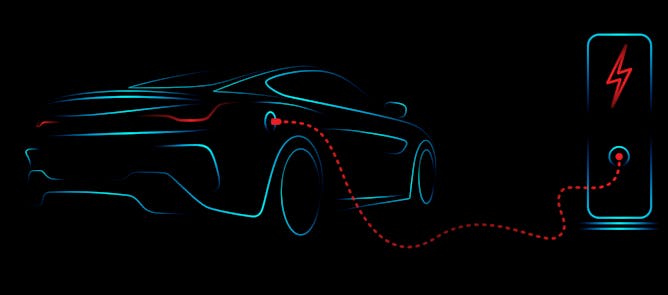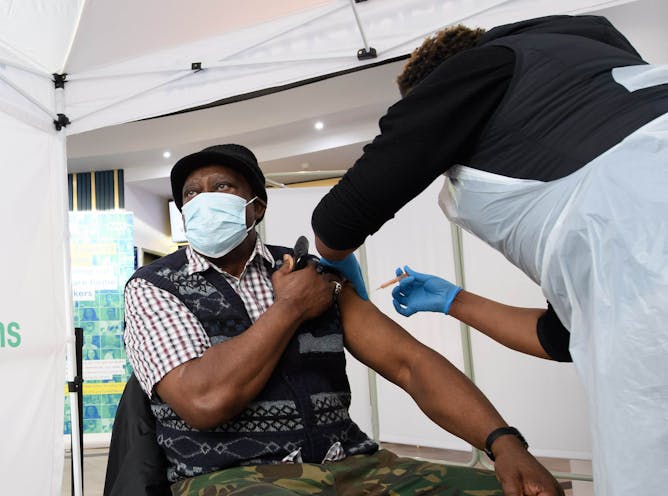|
|
|
|
Last summer, some friends of mine hired a Tesla and took it from London to Cornwall on holiday. The car was ideal for short trips to the beach, they said, but they had one big complaint: as its battery couldn’t do the long journey there on a single charge, they had to stop several times for an hour or more. A five-hour drive became eight.
It’s not the biggest problem in the world, but slow charging will put some people off making the switch to electric cars, even as prices come down significantly. So the recent development of an electric car battery that can be fully charged in just five minutes could have a have big impact on the car market.
That could be especially good news for the UK if recent moves towards electric vehicles lead to more investment in the country’s car manufacturing industry. But even with a post-Brexit trade deal secure, the future of the sector is far from certain.
Meanwhile, we’ve been hearing how anti-vaxxers are exploiting vaccine hesitancy among black people, and an army of “sewer robots” could one day keep our pipes clean.
|
Will de Freitas
Environment + Energy Editor
|

|
|

korkeng / shutterstock
Rachel Lee, University of Sheffield; Solomon Brown, University of Sheffield
Batteries that can be fully charged in just five minutes may soon be a reality.
|

Jonathan Hordle/PA
Winston Morgan, University of East London
Black people have understandable concerns about vaccines due to a history of racism.
|

Pipebots will inspect the walls for cracks.
Human Studio
Viktor Doychinov, University of Leeds
In the future, tiny robots will inspect pipes for blockages and leaks.
|
Health + Medicine
|
-
Carl Philpott, University of East Anglia
Around 60 million people have had their sense of smell affected by COVID.
-
Catherine Talbot, Bournemouth University
Increased isolation has worsened symptoms for some, but allowed others to reconnect with old hobbies or learn new skills.
|
|
Politics + Society
|
-
Eoin O'Sullivan, Trinity College Dublin; Ian O'Donnell, University College Dublin
Most of those incarcerated in mid-20th century Ireland were held in psychiatric hospitals, which have kept their secrets until today. This must change.
-
Sharon Austin, University of Florida
Georgia once had 'the South's most racist governor,' a man endorsed by the KKK. Now its senators are a Black pastor and a Jewish son of immigrants. A scholar of minority voters explains what happened.
|
|
Science + Technology
|
-
Adam J. Powell, Durham University; Peter Moseley, Northumbria University, Newcastle
Research suggests mediums possess a proclivity for hallucinatory experiences.
|
|
Arts + Culture
|
-
Jessica Floyd, Community College of Baltimore County
Crews sang the songs to ease the fears, anxieties and loneliness of daily life on merchant ships.
|
|
Environment + Energy
|
-
Tim Newbold, UCL; Adrienne Etard, UCL; Gonzalo Albaladejo Robles, UCL; Jessica J Williams, UCL
Food farmed in tropical and Mediterranean climates comes at a higher cost to biodiversity than that grown elsewhere.
|
|
Business + Economy
|
-
Jim Saker, Loughborough University
The Japanese car maker is not the whole industry – and there's also much disquiet about government's ambitious plans for electric vehicles.
|
|
Cities
|
-
John Rennie Short, University of Maryland, Baltimore County; Michael J. Orlando, University of Colorado Denver
Two scholars of cities explain why dense, urban areas will survive – and thrive – long after the pandemic ends, and even if they don't get a bailout.
|
|
| |
Featured events
|

|
Online Oxford Martin School Event, N/A, Oxfordshire, N/A, United Kingdom of Great Britain and Northern Ireland — University of Oxford
|

|
Wivenhoe Park, Colchester, Essex, CO4 3SQ, United Kingdom of Great Britain and Northern Ireland — University of Essex
|

|
East Road, Cambridge, Cambridgeshire, CB11PT, United Kingdom of Great Britain and Northern Ireland — Anglia Ruskin University
|

|
Wivenhoe Park, Colchester, Essex, CO4 3SQ, United Kingdom of Great Britain and Northern Ireland — University of Essex
|
|
|
|
| |
| |
| |
| |
| |
|
|
|
|
|
|
|